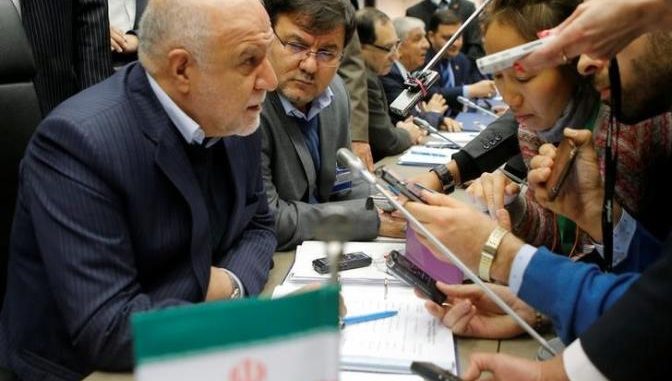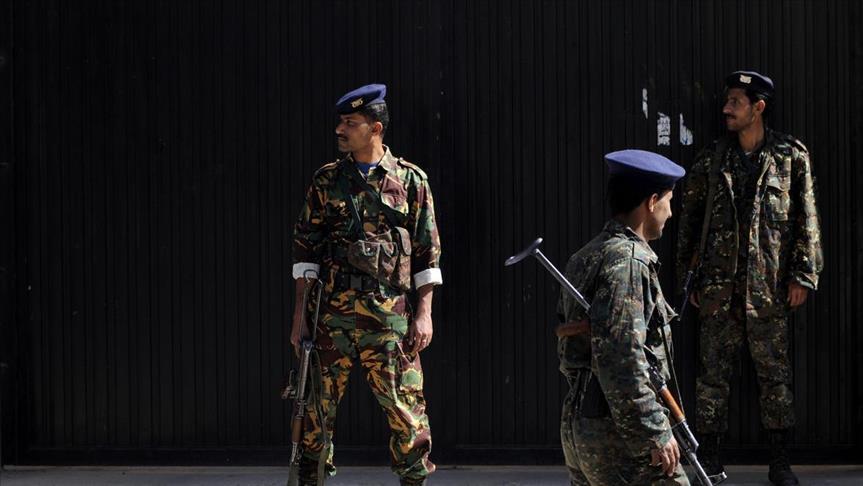
OPEC has agreed its first oil output cuts since 2008 and Iran accepted the deal and cutting its productions after months of resisting, while Saudi Arabia accepted “a big hit” on its production to be able to stabilize the market in the end.
“OPEC has proved to the skeptics that it is not dead. The move will speed up market rebalancing and erosion of the global oil glut,” said OPEC watcher Amrita Sen from consultancy Energy Aspects.
Following news of the deal, the price for Brent crude futures, the international benchmark for oil prices, surged to settle up nearly 9 percent. They eased slightly in early Asian trading on concerns that other producers, especially U.S. shale drillers, could fill any gap.
Saudi Energy Minister Khalid al-Falih said ahead of the meeting that the kingdom was prepared to accept “a big hit” on production to get a deal done.
“I think it is a good day for the oil markets, it is a good day for the industry and … it should be a good day for the global economy. I think it will be a boost to global economic growth,” he told reporters after the decision.
However, the crucial part in the deal was Iran’s acceptance after months of refusing and pushing its production to high limits after lifting the international sanctions on its economy.
A show of power
In September, OPEC agreed in principle at a meeting in Algiers to reduce output for the first time since the 2008 financial crisis.
Iran, according to delegates from other OPEC members, was unlikely to restrain supplies, given that it believes Saudi Arabia should cut back itself to make room for Iranian oil, in a clear sign of the tension and clash for power between the regional rivals.
Before signing the deal, sources said Saudi Arabia and its Gulf allies have signaled they were prepared to cut close to 1 million bpd of their output, as Saudi Arabia alone could cut up to 500,000 bpd.
“Eighty-five percent of proposed OPEC cuts are from Gulf countries but Iran is still not in favor,” one source said.
These numbers means that Gulf countries will be cutting important income for the sake of stabilizing the market, but Iran is still refusing, wanting to increase the pressure on them in a show of power.
Saudi Arabia produced a near-record-high 10.26 million barrels per day in April and has kept output relatively steady over the past year, and refused to cut its production in order to give Iran its share and keep the market steady.
The signals that Tehran has been sending seem to be clear: the country’s top priority is reviving its energy industry after years of sanctions and its willingness to contribute to a production curb is very conditional.
recently Iranian president Hassan Rouhani officially launched commercial production at three fields along Iran’s border with Iraq, effectively adding 220,000 bpd to its output. Plans are to ramp this additional output by1 million bpd.
Even if Iran agrees to this level of production, it means Saudi Arabia will be cutting most of the production if the deal goes through—something Saudi Arabia was previously adamant that it would not do.
For more than a decade after oil crashed to $10 in 1997, the two set aside rivalries to manage the market and support prices, although they fell into opposing OPEC camps with Iran wanting high prices and Saudi more moderate.
Now, the Sunni-Shia conflicts setting Saudi Arabia and Iran at each other’s throats, particularly in Syria and Yemen, make the relationship between the two even more fraught.
So what made Iran sign the deal?
The Russian role
Putin’s role as intermediary between Riyadh and Tehran was pivotal, testament to the rising influence of Russia in the Middle East since its military intervention in the Syrian crisis just over a year ago.
It started when Putin met Saudi Prince Mohammed in September on the sidelines of a G20 gathering in China.
The two agreed to cooperate to help world oil markets clear a glut that had more than halved oil prices since 2014, pummeling Russian and Saudi government revenues. Oil prices are up 10 pct this week topping $53 a barrel.
The financial pain made a deal possible despite the huge political differences between Russia and Saudi over the civil war in Syria.
“Putin wants the deal. Full stop. Russian companies will have to cut production,” said a Russian energy source briefed on the discussions.
Putin established that the Saudis would shoulder the lion’s share of cuts, as long as Riyadh wasn’t seen to be making too large a concession to Iran. A deal was possible if Iran didn’t celebrate victory over the Saudis.
A phone call between Putin and Iranian President Rouhani smoothed the way. After the call, Rouhani and oil minister Bijan Zanganeh went to their supreme leader for approval, a source close to the Ayatollah said.
“During the meeting, the leader Khamenei underlined the importance of sticking to Iran’s red line, which was not yielding to political pressures and not to accept any cut in Vienna,” the source said.
“Zanganeh thoroughly explained his strategy … and got the leader’s approval. Also it was agreed that political lobbying was important, especially with Mr. Putin, and again the Leader approved it,” said the source.
On Wednesday, the Saudis agreed to cut production heavily, taking “a big hit” in the words of energy minister Khalid al-Falih – while Iran was allowed to slightly boost output.
Iran’s Zanganeh kept a low profile during the meeting, OPEC delegates said. Zanganeh had already agreed the deal the night before, with Algeria helping mediate, and he was careful not to make a fuss about it.
After the meeting, the usually combative Zanganeh avoided any comment that might be read as claiming victory over Riyadh.
“We were firm,” he told state television. “The call between Rouhani and Putin played a major role … After the call, Russia backed the cut.”



